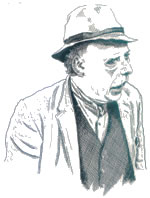-
Recent Posts
-
In my Father’s Time…
It was 1959. The National Council for The Blind of Ireland gave my visually impaired mother a wireless. It was our first radio. At the time my contemporaries were clued in to the highlights of Radio Luxemburg and the Light Programme. But, always one to live in the past, I had a preference for the folk programmes on Radio Eireann. My adrenalin was really let loose by the prologue to one in particular…


